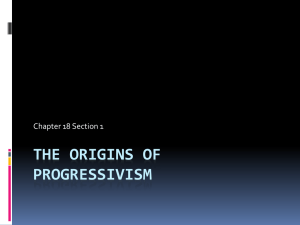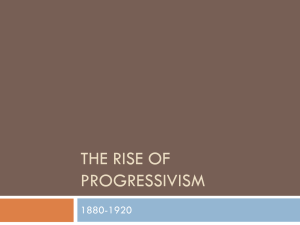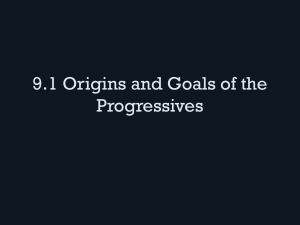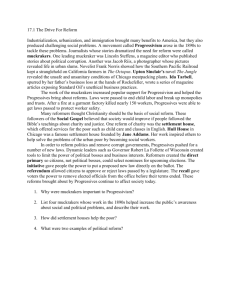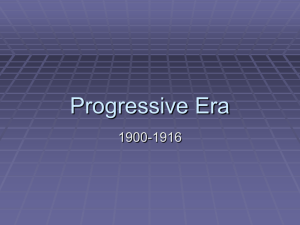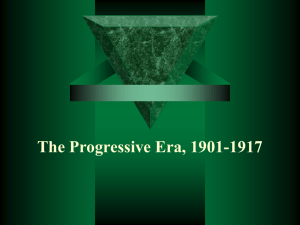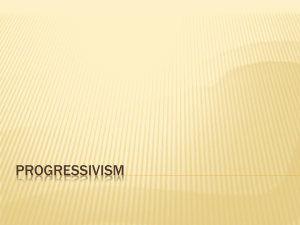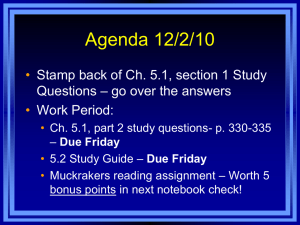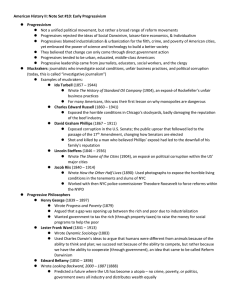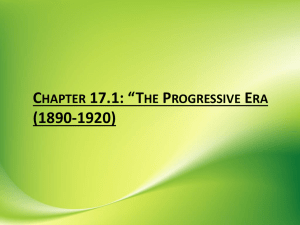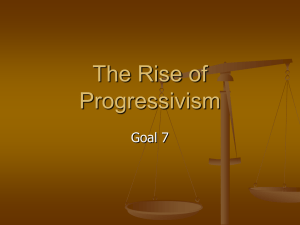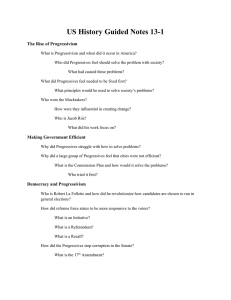The Rise of Progressivism
advertisement
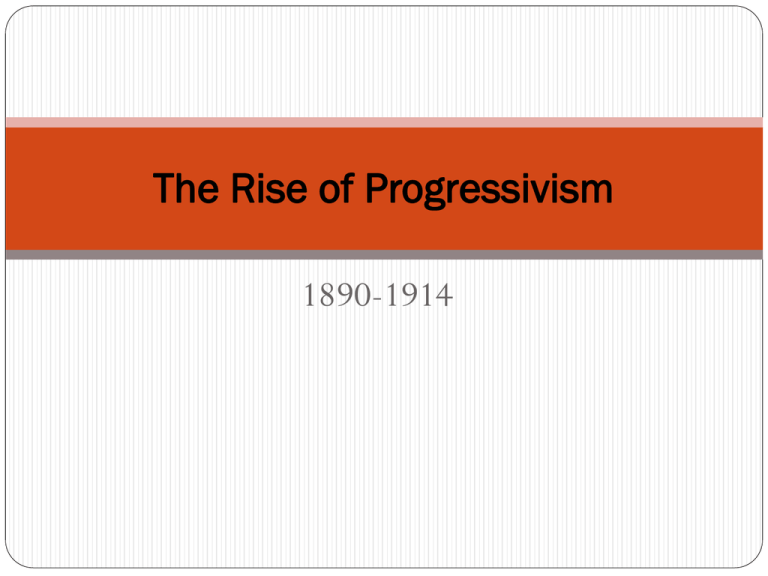
The Rise of Progressivism 1890-1914 Progressivism Problems for America: immigration industrialization urbanization Progressive Movement tried to reform America socially, economically, and politically Socially: Suffrage, Prohibition, Poverty, Crime Economically: Big Business, Laissez-faire Politically: corruption, inefficiency, more responsive to people’s needs Muckrakers Labeled by Theodore Roosevelt Journalists who were aware of the problems in America wrote articles exposing the problems demanded the problems be fixed Used investigative reporting to uncover horrible problems in America Jacob Riis: uncovered the horrible conditions of the slums in How the Other Half Lives Famous Muckrakers Lincoln Steffens published The Shame of the Cities Collection of articles on political corruption Showed that corrupt politicians were threatening voters and taking advantage of citizens Ida Tarbell published The History of Standard Oil she reported that Rockefeller used ruthless methods to ruin his competitors and charge high prices Famous Muckrakers Upton Sinclair Wrote The Jungle Wrote about the miseries of industrial work experienced by immigrants Also uncovered the unsanitary practices used in the meat packing industry Social Gospel Blended Progressivism and socialism Follow the Bible’s teachings on: charity justice America could be better Pushed for the end of child labor shorter work weeks government regulation of monopolies Child Labor Progressives try to ban Gains: Children’s Bureau: investigate any issue affecting the health and welfare of children Keating-Owens Act: banned child labor…ruled unconstitutional but later Congress banned child labor for good Hull House Set up by Jane Addams in Chicago Settlement house set up to: improve the lives of the urban poor give mothers classes on child care and English Kindergarten and arts programs targeted immigrants to help them assimilate Triangle Shirtwaist Factory Fire killed 146 female workers because management had locked the doors from the outside Progressives demand reform: NY passed laws to make work places safer, worker compensation laws were passed Reforming Government Progressives realize that government must be reformed before society government could fix the economic and social problems when it was running better Political reforms were trying to give people more of a voice in government Reforms 17th Amendment: direct election of Senators Before the amendment state legislatures would choose the Senator Initiative: citizens can put proposed laws on ballots if enough people signed a petition Referendum: allows citizens to approve or reject laws Recall: citizens can remove politicians from office Commission form of government used in local governments puts power in more hands, not just a mayor (that could be corrupt) Famous Progressives Theodore Roosevelt: New York governor, future President Made corporations pay taxes Used the civil service system Woodrow Wilson: New Jersey governor, future President Reduced the power of RR’s Direct election of representatives Robert La Follete: Wisconsin governor Regulated RRs: lowered rates and increased RR taxes Improved education and working conditions
